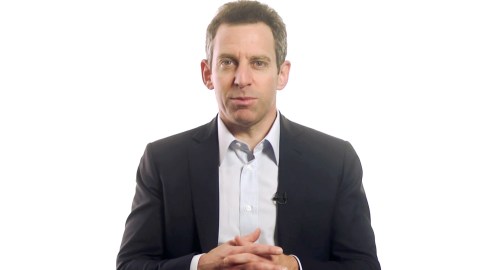Sam Harris, Spirituality, and the Reclamation of “Spooky” Words

Sam Harris isn’t hesitant to admit that he’s embarrassed by the word “spirituality.” The acclaimed author and neuroscientist recently visited Big Think to discuss the intimate experience of exploring the depths of human consciousness through mindfulness. Harris explains in his new bookWaking Up: A Guide to Sprirituality Without Religionhow normal people can “become like Jesus or become like the Buddha” by inhabiting the far end of the positive side of the continuum of human psychology and human well-being.
Harris notes that the introspective exercises and experiments for which he advocates have a certain point of contact with traditions like Buddhism. This makes the “spirituality” term the simplest point of access for newcomers. The relationship between the practice of mindfulness and the efforts of Tibetan monks, for example, is very explicit. This is in part why terms like “happiness” or “positive psychology” ultimately fail in trying to describe how someone can have really radical insights into the nature of consciousness by virtue of a disciplined practice like meditation.
“So while I argue that we have to get out of the religion business and the doctrines that have framed most people’s discussion of these experiences are as unwarranted as I’ve always said. There is no alternative term for the efforts that people can make through meditation or psychedelics or some other means to really transform their consciousness and have insight into the – it’s intrinsic selfless nature. And it’s inconvenient but I feel like the other words that are available are even spookier, something like mysticism.”
Harris closes with a brief discussion on etymology and the reclamation of powerful words, something he describes as a responsibility for those in the modern world. You can’t just discard words like “spirituality” and “evil” just because they’ve been misused in the past. Instead, it’s important to try and redefine them through useful scientific and naturalistic contexts:
“We need potent words. We just need to be precise about how we use them and the kinds of experiences that merit their use.”





